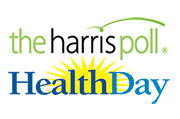- 10 Strategies to Overcome Insomnia
- Could Artificial Sweeteners Be Aging the Brain Faster?
- Techniques for Soothing Your Nervous System
- Does the Water in Your House Smell Funny? Here’s Why
- Can a Daily Dose of Apple Cider Vinegar Actually Aid Weight Loss?
- 6 Health Beverages That Can Actually Spike Your Blood Sugar
- Treatment Options for Social Anxiety Disorder
- Understanding the Connection Between Anxiety and Depression
- How Daily Prunes Can Influence Cholesterol and Inflammation
- When to Take B12 for Better Absorption and Energy
Most Americans View Access to Health Care as a Moral Issue…


An overwhelming majority of Americans believes that access to health care is a moral issue, and that the United States should be able to afford universal health care if other developed nations can do the same.
But after that, Americans are still deeply divided over many provisions of the Affordable Care Act (ACA), more than five years after President Barack Obama signed the controversial health-reform legislation into law, a new HealthDay/Harris Poll found.
“Many supporters of the ACA believed that it would become more popular — like Medicare and Medicaid — when it enabled many more people who previously did not have health insurance to get it. That has not happened,” said Humphrey Taylor, chairman emeritus of The Harris Poll.
The law, championed by Obama and often called Obamacare, continues to be popular with most Democrats and unpopular with most Republicans.
“But there is a remarkable consensus, regardless of party affiliation, that ensuring that sick people get the care they need is a moral issue,” Taylor added.
The poll was conducted online, in English, within the United States between Aug. 12-17 among 2,212 adults aged 18 and older.
The complexity of the Affordable Care Act and the U.S. health care system likely explains much of the public’s divide over the law, Taylor said.
“Health care policy is complicated, which helps to explain why many people react positively to apparently contradictory policy positions,” Taylor said. “One is reminded of H.L. Mencken’s comment that ‘for every complex problem there is an answer that is clear, simple and wrong.’ “
For starters, public opinion regarding Obamacare remains as polarized as ever, with 33 percent of adults wanting to repeal it, 30 percent wanting to keep some parts of it and change others, and 26 percent wanting to keep it as is, the poll found.
These attitudes have barely budged since the law was passed. The biggest change has been an increase from 21 percent to 30 percent in those who want to keep some parts of the law and change others.
On the other hand, a substantial 49 percent of the public supports the U.S. Supreme Court’s decision in June that insurance subsidies provided under the ACA are legal, although much of that support comes from Democrats. About 28 percent of the public opposes that decision, and 22 percent are undecided.
An estimated 16.9 million people have gained health insurance coverage since Obamacare took effect, but not all of them gained coverage due to the law.
The poll also found that a 63 percent to 21 percent majority favors a universal health care system — by party affiliation the breakdown is 33 percent Republican, 87 percent Democrat and 61 percent independent. And a 76 percent to 24 percent majority also agrees that since most other advanced countries can afford to provide universal health insurance, so could this country.
In addition, an overwhelming 84 percent to 16 percent majority believes that having a system that ensures that sick people get the care they need is a moral issue. That includes 75 percent of Republicans and 91 percent of Democrats.
But, 52 percent of Americans think it’s an individual’s personal responsibility to figure out how to obtain health insurance. And exactly half — 50 percent — say that providing a system of universal coverage so everyone has health insurance would cost too much.
For the most part, those numbers provide hope for supporters of health care reform that, as the Affordable Care Act continues onward, more people will rally to it, said Rachel Klein, director of organizational strategy for the health care advocacy group Families USA.
“Americans really believe people should be able to get health care when they need it, and that’s what the Affordable Care Act is enabling to happen,” Klein said. “We’re still in the early days of the Affordable Care Act, and I think things will become clearer as more people are impacted by the provisions of the act.”
But Devon Herrick, a senior fellow at the free-market National Center for Policy Analysis, argues that the conflicting views are a reflection of “the recognition that health care is expensive, and there are limits to what the nation can afford in terms of new entitlements.”
And, Herrick added, “These views are also consistent with the idea of a health care safety net that provides a minimal level of coverage, but affords most people the option to spend more if they want to. Programs like Medicaid are an example. By all measures, Medicaid is inferior to private coverage. Yet, the program has significant support — even among Republicans.”
Attitudes about the Affordable Care Act, and what kind of health care system the country should have, remain sharply divided along party lines. For example:
- 65 percent of Republicans, but only 10 percent of Democrats, favor repealing the ACA.
- 73 percent of Democrats, but only 22 percent of Republicans, agree with the Supreme Court’s decision on subsidies.
- 65 percent of Democrats, but only 19 percent of Republicans, believe that health care should be an entitlement.
- 87 percent of Democrats, but only 33 percent of Republicans, favor a universal health care system.
More information
For more on the Affordable Care Act, visit the U.S. Department of Health and Human Services.
For more details on the poll, click here.
Source: HealthDay
Copyright © 2026 HealthDay. All rights reserved.










